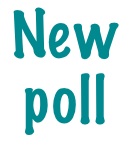 I was perusing the Facebook group The Organized Genealogist today and was struck by the number of people who organize their genealogy data in binders. I wrote about the Folders vs Binders debate a couple of years and I fall soundly on the side of file folders over binders. The truth of the matter, though, is that these days I’m dealing almost exclusively with electronic files, so that particular debate is moot for me.
I was perusing the Facebook group The Organized Genealogist today and was struck by the number of people who organize their genealogy data in binders. I wrote about the Folders vs Binders debate a couple of years and I fall soundly on the side of file folders over binders. The truth of the matter, though, is that these days I’m dealing almost exclusively with electronic files, so that particular debate is moot for me.
But it started me wondering how my readers organize their data. So I created a little poll. Would you please vote so I can see how you guys like to organize? Feel free to select as many answers as appropriate. And also, feel free to elaborate in the blog post’s comments.
Finally, there are some terrific comments in the poll itself. Click on Comments in the View Results page. All the commenters are right–it’s not about one method over another, it’s about how we mix it up!

I picked most of the choices! Binders with tabs and indices to organize my vital records and other critical documentation. Folders for what I call “puzzle pieces” that I either am not sure how they fit yet, or they are extra info — county histories, etc. — to provide background for stories. Hard drive — digital photos, things I’ve scanned. Formerly used PAF, now FTM. I also store websites that I find there — digital puzzle pieces and background info. Cloud: Ancestry.com, Evernote. Hard drive backed up by Carbonite.
Hazel, thank you for all the details!
I chose two as I equally use binders plus on my hard drive. This part of my backing up. I use hanging file folders in family names, colour coded to store all my bits to be analysed, referenced then entered
Thanks, Nan! I’m loving these peeks into people’s systems.
All of the above! I have binders for family names, because it is simple to pull out physical records to show family members. Even if the relative is computer savvy, flipping pages is easier than clicking, scrolling and swiping. Color coded file folders are used for artifacts such as funeral programs, actual newspaper clippings, family reunion programs, etc. Sure they are scanned and digitized, but there is something about looking at the original and feeling the texture of the paper that does not translate to a digital image. My hard drive is used to store all my digital files, photos and Legacy Family Tree program. In the cloud I use OneNote to keep track of different genealogy topics, articles, websites, non-direct family lines, etc. I also have trees on Ancestry.com and FamilySearch.org. Backups for my Legacy Family Tree files are in the cloud, on an usb flash drive and on an external hard drive. Ditto for my digital files.
Thanks, Danni, for explaining how you use all those strategies. I love getting to hear how people organize!
I prefer binder over folders. I can easily take a binder with me to a library or Family History Center. I could take a folder but there is less chance of something falling out if it’s in a binder. I am slowly digitizing the contents of my binders, but I will probably keep the binders, too. If you are analyzing several documents on an ancestor, it’s easy to lay them out in front of you. That’s not easy with a digital image. The digital images are searchable if they are in a searchable format, such as Evernote. As with many things, there’s no one right answer. Go with whatever works for you, but it’s surely nice to have these options and see how others deal with it. Thanks
Thanks, Steve. I appreciate your making the case for binders, since I have such a strong bias against them. It really proves that every individual organizes differently.
Binders, hard drive, cloud + Evernote and Pinterest.
Thanks for your comment, Elizabeth. I think I need to explore using Pinterest more for genealogy!
Binders for my direct ancestors. Folders for everyone else. Similar folders on my computer to the folders in drawers.
That’s an interesting differentiation, Jacquie. And it makes a lot of sense to me! Thanks for contributing to the discussion.